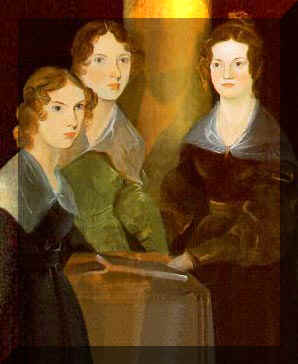Every kid has a dream, right? Mine was to be a writer, and I spent a lot of time imagining how it'd be. I would sit in some beautiful room somewhere, in front of a window overlooking an idyllic garden perhaps, quietly tapping away on my keyboard at rapid speeds. No one would ever bother me. I would complete my books and send them off to some huge publishers, who would turn the pages into a perfect book with a fabulous cover and all of that. Everyone would buy the books, and I would continue writing. Now, I am a writer...and I realize how foolish every bit of that imagery really is.
I hardly ever have the time to write. It's the last thing I add to the list and the first one I take off when things get dicey, the task I wish I could get to but rarely do. And some of the time I'm not writing and yet still fully engaged in the job of being a writer, I'm dealing with other authors other than myself.
And if you're self-publishing, you're going to have to deal with them, too.
Hey, There Are Other Writers Here
You're a member of the indie author community even before you self-publish your first book. Once you make a decision to self-publish, you're part of the group...and it's a huge group. You're going to need them right away, so that's a good thing.
- Reviews. Most all your early reviews are probably going to come from other authors if you're participating in the indie community. Review swaps can help you get your first reviews, and even if you don't swap you will find lots of indie authors who really want to review other self-published writers. Participate in forum groups (like the ones at Goodreads) to find them.
- Networking. Indie authors share information with other indie authors. Participate in forums where you find useful links, and look for indie author blogs where writers share from their own experiences and provide resources. If you want more specific information, send a message to the author through social networking sites or through email addresses, if they're listed on the blogs themselves.
- Supporting. Indie authors will support one of their own. Follow them on Twitter and Facebook, and they'll follow you back. What's more, they'll re-tweet and re-post your stuff when you're sending out links and information about your books. This is a great reason for keeping the indie author community on your side.
- Opportunity. Speaking of indie author blogs, you'll be exposed to a world of opportunity when you participate in the indie author community. You may receive invitations to provide guest posts, join blog tours and participate in other special events that will help you promote yourself and your work.
Any one of the reasons listed above is a compelling argument for participating in the indie author community, but in reality it's a whole lot easier said than done. Dealing with other authors in almost any capacity, especially indie authors, can be extremely trying...and there are times when you're going to need to marshal your strength in order to do it.
But a few tips can't hurt.
- Reviewing Them
And that's when things start to get dicey. You may be met with anger and unappealing behavior after giving a self-published author some well-meaning criticism. It's your job to stay professional and polite, and that's the beginning of the first thing you need to know.
- You're a professional.
- Supporting them.
- Tolerating them.
- Reading them.
All readers don't respond to all writers the same way, and you're going to find lots of indie authors to whom you don't respond when you read their work. You might end up reading and reviewing an indie book that quite literally makes you miserable, or one so filled with errors it brings you to tears. They're out there, guys. I know where they're at, and you'll find them, too.
You might hate them, for that. You might hate them for those errors. You might, like me, go to the very brink of insanity because of repeated formatting issues (justification, justification, justification). You might hate yourself for agreeing to read something that turns out to be not worth reading beyond the first page. Everyone has hated a book produced by a major publishing house, too. I've found errors in mass-market paperbacks that could curl your eyelashes.
You might think to yourself, I'm not like them. I don't belong with them. I've seen, and been offended by, flowery forum posts that say pretty much this. There's a stigma associated with self-published authors, and believe me if you read enough of them you'll know why it's there. But there are fantastic indies out there, too, the discovered and the un-discovered who are just waiting for their words to catch fire (and they will). I've found them as well. Like every single other kind of author, self-published authors all have their own writing strengths and weaknesses, and you're going to love some and hate some. Do not become guilty of grouping them together the way the media and the numbers-crunchers do.
All books are books, and all authors are authors. They all write the same way, don't they? They've got the same standard keyboard as you, and me, and every other self-published author. They're on the same social media sites. They've got the same plot problems, and they roll their eyes the same way when it's time to start editing. They just have a few more people around them and a few more dedicated readers, that's all. The main thing you ought to know about being an author? You have to extend some professional respect to all other authors...and that's the best, and only, way you should be dealing with them.


























